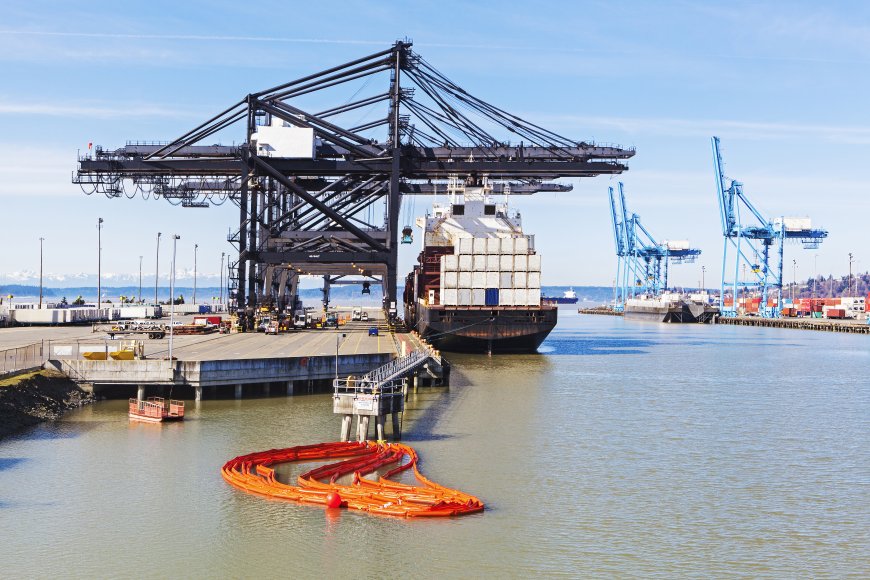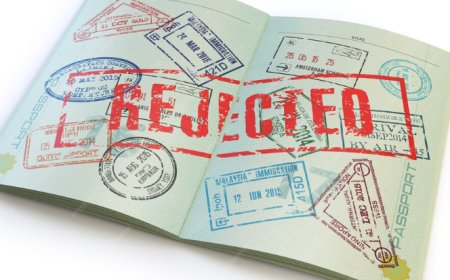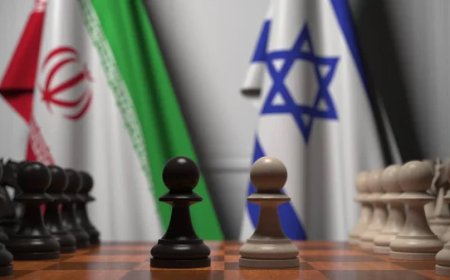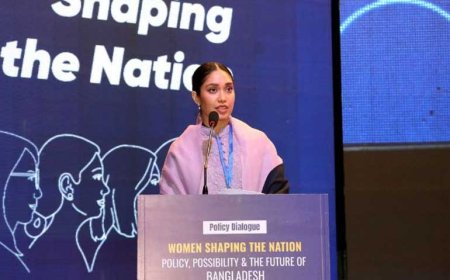Governing by Announcement
A contract which commits Bangladesh to a 30 year arrangement with foreign operators involving sensitive and vital parts of our national infrastructure is a contract an interim government with no official opposition should feel neither empowered not entitled to sign.

The announcement of the interim government’s decision to let foreign operators provide their services at a number of terminals at Bangladesh’s Port, was made so casually and without fuss that one might have been fooled into thinking this is a routine administrative decision and not a significant expansion of the government’s continuing, unchecked overreach.
Conversations surrounding this decision have focused on economic benefits, domestic syndicates, examples of international port handling from around the region, and the efficiencies that will be won, all of which are certainly important parts of the conversation, but which come well after the parts that deal with mandates, legality, accountability and oversight.
Despite concerns expressed over the matter from several quarters including by Anu Mohammed and the Army Chief himself, the interim government felt there was no need to publish so much as a white paper or to open up the decision to a debate among experts. Nor did it leave the matter to an elected Parliament which will convene just months after the December date that has been set for the contract to go into effect.
So what do we know about this policy decision?
We know foreign operators will manage three major container terminals, Chittagong’s New Mooring Container Terminal, Laldia Terminal, and Keraniganj’s Pangaon Inland Container Terminal -- by December, and that the Laldia Terminal will be leased for 30 years, while the other two terminals will operate under 25 year contracts. We also know that this is the first time in the country’s history that contracts of this nature have been entered into.
What we don’t know is which countries or what operators will be involved, we don’t know what terms the contracts contain nor what the consequences are for a breach of contract, we don’t know what sort of tendering process, if any, was used to select the operators, something which the Public Procurement Act 2006 specifically requires, we don’t know what sort of policy debate took place, who participated in it, what alternatives were suggested, we don’t know how this affects our balance of payments or foreign currency reserves, we don’t know if a proper assessment of risks to national sovereignty were considered.
In short, we know very little about a decision that will affect an entire generation of Bangladeshis, and which was taken by a government that has no official mandate or recogniszble opposition, in a manner which is neither democratic and may not adhere to the nation’s laws.
By way of assurances to the public, the government announced that a negotiation committee, headed by an additional secretary, had been formed to review concession agreements, yet made no indication about whether the committee would comprise of experts or stakeholders from outside the government, something required by the Public Procurement Regulations 2003, nor about how members of the committee had been selected.
It also made bold declaratory statements such as the following one by Shipping Secretary Mohammed Yousuf:
"Once finalised, we will publish the agreements on our website so the public can see that we have not compromised national interests. Our main message is this: we will not allow the country to be sold. That is also the stance of our chief adviser and the advisers in the interim government"
Mr Yousuf perhaps failed to grasp the redundancy of publishing details of an agreement which could potentially compromise national sovereignty, after the deal has been finalized and when competent scrutiny will have very little effect.
And this is the crux of the problem. An unelected, unopposed government that can pass laws, signs agreements and enact policy by fiat rather than through a legislative process, has no need to be concerned about scrutiny. They need neither MPs, a majority in parliament nor good enough responses to questions that may be put to them by an opposition or by an oversight committee.
They are unchallenged in the most absolute of ways, and as Professor Yunus claimed in an interview with Mehdi Hassan in New York last month, empowered to remain in such a position for as long as they themselves deem fit. There is no constitutional power in the land to remove them.
The fact that this is not a situation which causes widespread alarm is alarming in itself. For over a year now, a temporary placeholder government has arrogated to itself the powers of an absolute authority, proceeding to restructure institutions, create laws, take loans, sign agreements, and attempt a rewriting of our constitution, all of which would require rigorous public and parliamentary participation in different circumstances.
The port agreements may well turn out to be a wonderful decision and may have an enormous positive impact on our international trade. But that isn’t the point. The point is a benevolent despot is still a despot and the uprising of 2024 was categorically about the removal of despotism.
A contract which commits Bangladesh to a 30 year arrangement with foreign operators involving sensitive and vital parts of our national infrastructure is a contract an interim government with no official opposition should feel neither empowered not entitled to sign.
The fact that this one does, and that too literally months before they disband, speaks volumes about the regard they have for democratic processes and the rule of law.
Zeeshan Khan is the author of 'Right to Passage -- Travels Through India, Pakistan and Iran' and a barrister from Middle Temple
What's Your Reaction?




















































































